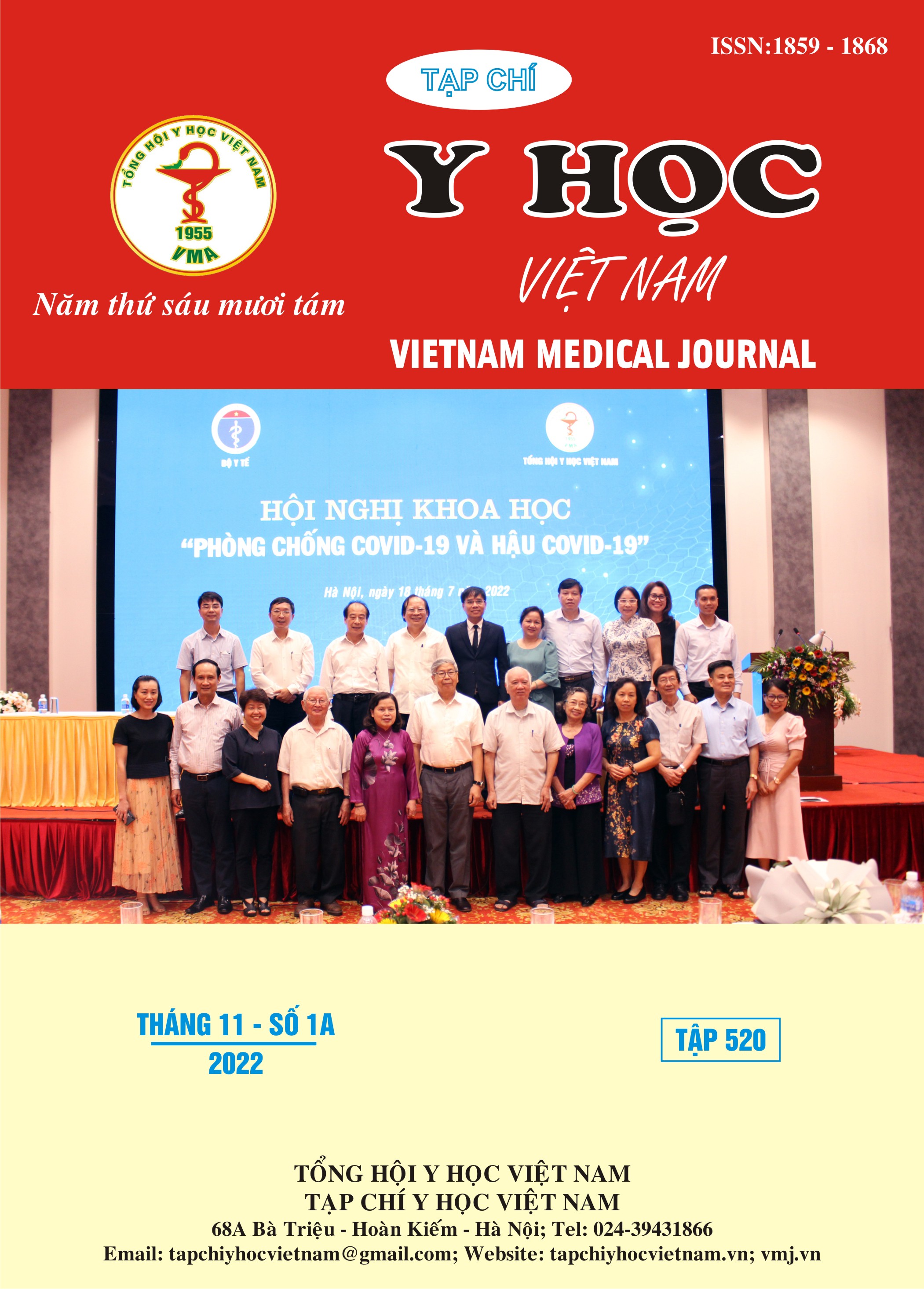OVERVIEW OF INDUCTION CHEMOTHERAPY IN ADVANCED HYPOPHARYNGEAL SQUAMOUS CELL CARCINOMA
Main Article Content
Abstract
Objectives: Analysis of response rates of induction chemotherapy and subsequent treatment directions. Study design: Scoping review. Methods: Using database from Pubmed website, Hanoi Medical University library and manual search (January 1996 to July 2022). The inclusion criteria were studies of advanced-stage hypopharyngeal squamous cell carcinoma treated with adjuvant chemotherapy followed by surgery/radiation/adjuvant chemoradiation and outcome reporting on incidence. complete response, partial response, retention rate (GN), progression rate (TTr) and cancer outcome at 3 years. Result: Outcomes at 3 years of prior induction chemotherapy. The complete response rate (CR) was 6-55.7%. The partial response rate (PR) is 32-80%. The no change (NC) ratio is 3.3-29.6%. The progressive disease rate (PD) was 6.7-7.5%. The rate of no distant metastasis was 75-91%. The overall survival rate (OS) and preserved larynx rate were achieved from 38.3-76.7% and 34-76, respectively. Conclusion: Induction chemotherapy helps in the treatment of patients with advanced stage of pharyngeal squamous cell carcinoma in reducing the rate of distant metastases, allowing the selection of patients for chemotherapy and radiotherapy, increasing the ability of organ preservation.
Article Details
Keywords
Advanced hypopharyngeal cancer, induction/adjuvant chemotherapy
References
2. Chung EJ, Jeong WJ, Jung YH, et al. Long-term oncological and functional outcomes of induction chemotherapy followed by (chemo)radiotherapy vs definitive chemoradiotherapy vs surgery-based therapy in locally advanced stage III/IV hypopharyngeal cancer: Multicenter review of 266 cases. Oral Oncol. 2019;89:84-94.
3. Dietz A, Rudat V, Dreyhaupt J, et al. Induction chemotherapy with paclitaxel and cisplatin followed by radiotherapy for larynx organ preservation in advanced laryngeal and hypopharyngeal cancer offers moderate late toxicity outcome (DeLOS-I-trial). Eur Arch Otorhinolaryngol. 2009; 266(8) : 1291-1300.
4. Joshi P, Patil V, Joshi A, et al. Neo-adjuvant chemotherapy in advanced hypopharyngeal carcinoma. Indian J Cancer. 2013;50(1):25-30.
5. Kim et al. - 1998 - Neoadjuvant chemotherapy and radiotherapy for the .pdf.
6. Lee JK, Lee KH, Kim SA, et al. p16 as a prognostic factor for the response to induction chemotherapy in advanced hypopharyngeal squamous cell carcinoma. Oncol Lett. 2018;15(5):6571-6577.
7. Lefebvre JL, Chevalier D, Luboinski B, Kirkpatrick A, Collette L, Sahmoud T. Larynx preservation in pyriform sinus cancer: preliminary results of a European Organization for Research and Treatment of Cancer phase III trial. EORTC Head and Neck Cancer Cooperative Group. J Natl Cancer Inst. 1996;88(13):890-899.
8. Liu S, Fang J, Ma H, et al. Rational choice of induction chemotherapy-based larynx preservation for hypopharyngeal cancer. Acta Otolaryngol. 2018;138(12):1146-1153. doi:10.1080/00016489.2018.1506152
9. Nakahara R, Kodaira T, Furutani K, et al. Treatment outcomes of definitive chemoradiotherapy for patients with hypopharyngeal cancer. J Radiat Res. 2012; 53(6):906-915.
10. Phùng Thị Hoà. Đánh giá điều trị ung thư biểu mô vảy hạ họng giai đoạn III, IV (M0) bằng Cisplatin-Taxane và 5FU trước phẫu thuật và/hoặc xạ trị.2009:76;133.


